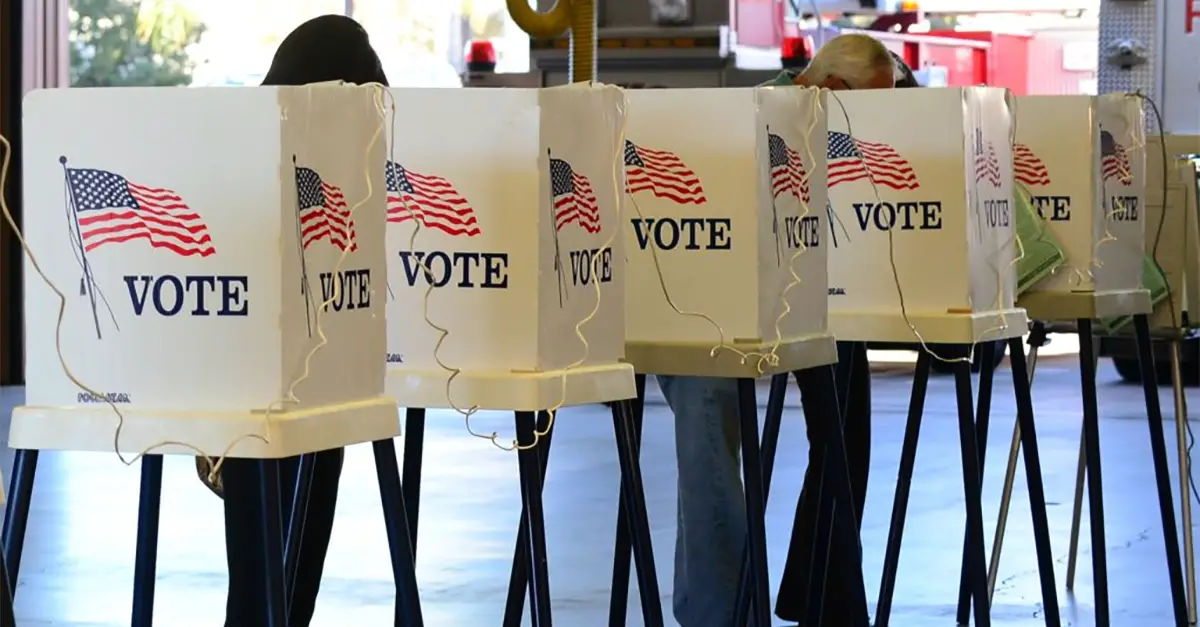One of our commenters, who goes by the name of “A Guy,” says voter suppression is a serious problem, so we took a look. As it turns out, complaints have been rolling in from Sea to Shining Sea. So let’s closely examine a few stories in the media.
“A Guy” specifically mentioned Arizona. As it turns out, the Department of Justice is already looking into it, according to CNN.
The Department of Justice is requesting additional information from an Arizona election official after lawmakers and activists alleged voter suppression during the Arizona presidential primary last month.
Democratic lawmakers have claimed there were some working-class and primarily Latino neighborhoods that had no polling places. . .
Vermont Sen. Bernie Sanders, who lost Arizona to Democratic front-runner Hillary Clinton, called the situation “a disgrace” soon after the primary.
The Washington Times blames it on the Supreme Court’s overturning provisions of the Voting Rights Act.
Ever since the Supreme Court poked a hole in the Voting Rights Act, activists have been warning of devastating effects on average voters showing up at the polls.
Last month, they got their case in Arizona, where some voters said they waited in lines longer than five hours to vote in the primary elections after Maricopa County, one of the most sprawling in the country, cut its number of polling places from more than 400 in 2008 down to 60 this year.
Other voters said they had their registration secretly changed without their knowledge, locking them out of the “closed” primary, in which voters had to have declared their affiliation in advance to be able to vote in either party’s contest. Supporters of Sen. Bernard Sanders alleged dirty tricks, saying the vast majority of secret switches were those who were changed from Democrat to independent.
More recently, there were complaints about New York, and that State’s attorney general is investigating.
Attorney General Eric Schneiderman launched the probe, starting with the New York City Board of Elections, in response to “more than one thousand complaints” of “improprieties” in the voting process.
NPR reported that the names of approximately 120,000 Democratic voters disappeared from the rolls in Brooklyn, a decline not matched in the city’s other four boroughs.
Where else? Well, there’s Wisconsin…
Though the Wisconsin spring presidential primary has come and gone, many are still concerned with the “voter suppression” that occurred at polling places, particularly for college students.
Across University of Wisconsin’s campus, students were discouraged from voting because of voter ID hurdles and longer lines.
Then, there’s Ohio…
Looking past the one-month anniversary of Ohio’s March 15 primary, several angles about the possibility of voter suppression are being explored in the Buckeye State.
How about next week?
Some of these states have seen serious problems in recent elections — from polling places in Connecticut running out of ballots and turning away voters to Rhode Island poll workers misinforming voters about the state’s ID law — others have taken steps to make it easier to vote.
Delaware, Pennsylvania, Connecticut, and Maryland have implemented online voter registration, and Rhode Island will soon follow. Connecticut has approved Election Day registration, a policy found to significantly boost voter turnout, and lawmakers in Delaware are pushing the state to follow their lead. Maryland recently restored voting rights to more than 40,000 former felons who are serving parole or probation.
But several issues still worry Maryland’s voting rights advocates. The state recently switched from electronic voting back to paper ballots, following glitches and security concerns. But the paper ballots — where voters have to fill in circles with a pen and feed it into a scanner — come with their own headaches.
HuffPost says “irregularities” have been going on all year.
The DNC has relied upon its favorite scapegoats (benign incompetence, and of course, Republicans) to explain away the convenient “mishaps” and anomalies that have consistently favored Clinton as she elbows her way to the Democratic coronation ceremony in Philadelphia. Even Nate Silver, widely regarded as the Gandalf of statistical analysis, still can’t figure out how Clinton won in Iowa and Massachusetts:
“How did Clinton (barely) win the Iowa caucuses when she got crushed in other Midwest caucus states, like Kansas and Minnesota? How did Sanders lose Massachusetts after winning New Hampshire by so much?”
Maybe because our election process is completely broken and untrustworthy?. . .
The United States can now boast of another commonality it shares with banana republics: Only 3 in 10 Americans believe that the nation’s election process is functional — a record low, according to a new Gallup poll.
What can be done about the “irregularities”? Some cases are going to court. And we thank “A Guy” for bringing it to our attention.
